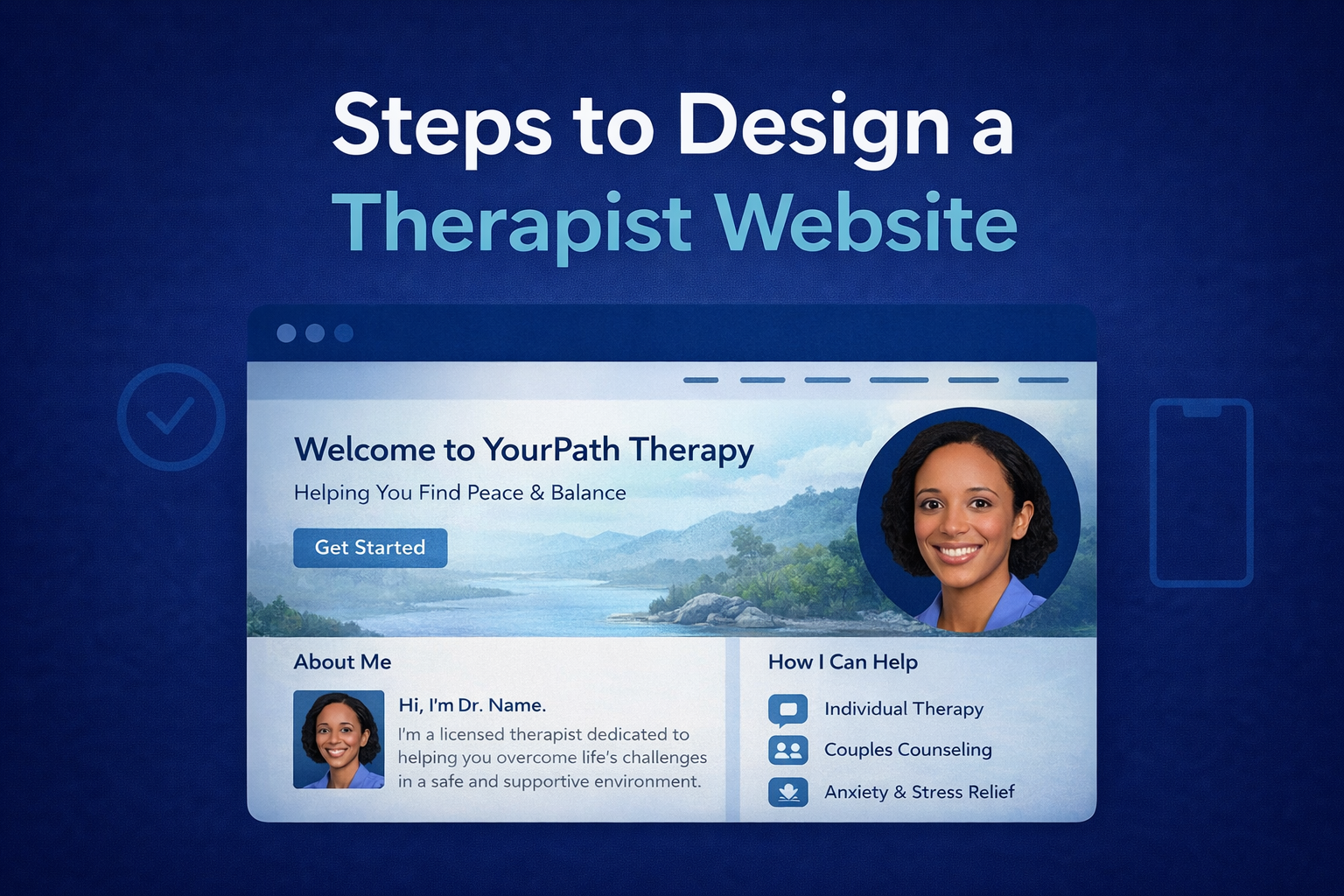Marketing is one of the most critical aspects of running a successful mental health practice today. While clinical skills form the foundation of a therapist’s work, the ability to reach and attract the right clients through ethical and effective marketing ensures that practices thrive. With more professionals entering the mental health space and clients increasingly searching online for providers, strategic marketing has become essential for visibility, credibility, and long-term growth.
This guide will provide a comprehensive roadmap for marketing mental health services effectively. It covers digital marketing, branding, ethical considerations, and practical steps that mental health professionals can apply immediately to grow their practice.
The Importance of Marketing in Mental Health
For mental health professionals, marketing is not about aggressive sales tactics—it is about visibility and accessibility. Potential clients need to know who you are, what you specialize in, and how you can help. Without marketing, even the most skilled professionals may remain invisible to people who need their support.
Key benefits of marketing for mental health professionals include:
- Reaching clients who are actively searching for help.
- Establishing trust and credibility through professional presentation.
- Differentiating your practice in a competitive market.
- Expanding referral networks.
- Building a consistent flow of clients for practice stability.
In today’s digital-first world, most clients look online before deciding on a therapist. This makes digital marketing, including having a strong website, SEO therapists, and a consistent online presence, essential for building trust and attracting the right clients.
Building a Strong Online Presence
An effective online presence serves as your digital office front. It is often the first impression potential clients have of your practice.
Professional Website
Your website should:
- Clearly state who you are and what services you provide.
- Highlight your specialties, such as trauma therapy, couples counseling, or child therapy.
- Be mobile-friendly and easy to navigate.
- Provide clear calls to action such as “Schedule a Consultation” or “Contact Us.”
For therapists, having a website optimized for both function and compliance is vital. A custom-built solution designed for mental health professionals ensures that your practice aligns with privacy and usability standards. Learn more about this through resources such as custom EHR solutions for therapists.
Search Engine Optimization (SEO)
SEO ensures that when potential clients search for services like “anxiety therapy near me” or “teletherapy for couples,” your practice shows up in the results.
Key strategies include:
- Optimizing web pages with relevant keywords.
- Creating content that answers client questions.
- Ensuring your site loads quickly and securely.
- Earning backlinks from credible websites.
A deeper dive into how SEO supports mental health professionals can be found in the role of SEO in helping therapists get found online.
Leveraging Teletherapy to Expand Reach
Teletherapy has transformed the way therapists serve clients. It allows professionals to reach individuals who might not otherwise seek help due to geography, mobility, or scheduling barriers.
Marketing teletherapy effectively involves:
- Highlighting accessibility: Clients can attend sessions from the comfort of home.
- Communicating compliance: Reassure clients that teletherapy is HIPAA-compliant.
- Targeting specific demographics: Students, parents, or professionals who value flexibility.
Promoting teletherapy options on your website and across digital platforms positions your practice as forward-thinking and client-centered. Explore practical strategies for this in teletherapy for mental health practices.
Branding for Mental Health Practices
Branding is more than just a logo. It’s the entire perception of your practice, from your website design to your tone of communication.
Elements of Effective Branding
- Professional Identity: Highlight your areas of specialization and therapeutic style.
- Consistency: Use consistent colors, fonts, and messaging across platforms.
- Values Communication: Showcase what matters to you, such as inclusivity, evidence-based practices, or holistic care.
- Authenticity: Clients connect better when they feel your brand reflects genuine care.
A strong brand differentiates you in a crowded marketplace and makes your practice memorable to clients.
Social Media Marketing for Therapists
Social media can help mental health professionals connect with potential clients and build trust.
Best Practices for Therapists
- Educational Content: Share posts about coping strategies, mindfulness, or stress reduction tips.
- Professional Boundaries: Keep posts professional while being approachable.
- Engagement: Respond to comments and direct messages appropriately.
- Platform Choice: Focus on platforms where your ideal clients spend time (e.g., Instagram, LinkedIn).
By providing valuable information consistently, therapists can establish themselves as thought leaders and trusted professionals.
Email Marketing for Client Retention
Email marketing is not just for attracting new clients but also for keeping current and past clients engaged.
Strategies for Effective Email Campaigns
- Share newsletters with wellness tips, updates, and events.
- Provide resources related to mental health awareness days.
- Offer reminders for group sessions, workshops, or programs.
Email campaigns should always be HIPAA-compliant, respecting confidentiality and privacy.
Networking and Referrals
Despite the rise of digital marketing, traditional networking remains powerful for therapists.
Networking Strategies
- Build relationships with physicians, schools, and community organizations.
- Join professional associations to expand your reach.
- Offer workshops or free talks to local groups.
Strong referral networks not only increase client inflow but also enhance credibility in the mental health community.
HIPAA-Compliant Marketing Practices
Maintaining compliance is critical in all aspects of marketing.
Compliance Essentials
- Avoid sharing client testimonials without explicit, documented consent.
- Use secure systems for forms, communications, and emails.
- Ensure your website complies with HIPAA standards.
For deeper insights, review strategies outlined in HIPAA-compliant technology for therapists.
Measuring Marketing Success
Marketing efforts should be continuously evaluated to ensure effectiveness.
Metrics to Track
- Website traffic and conversions.
- Search engine rankings for targeted keywords.
- Engagement on social media platforms.
- Client inquiries and appointment bookings.
Analytics tools help identify what’s working and where improvements are needed.
Digital Advertising for Therapists
Paid digital ads can complement organic marketing strategies by giving practices a faster boost in visibility.
Options for Therapists
- Google Ads: Appear in search results for relevant terms like “online therapy.”
- Social Media Ads: Reach targeted demographics with mental health messaging.
- Retargeting Campaigns: Reconnect with website visitors who didn’t book initially.
When done strategically, digital advertising can be a cost-effective way to fill your practice schedule.
Ethical Considerations in Marketing
Ethics are central to mental health practice, and marketing should align with those same standards.
Ethical Marketing Principles
- Honesty in all claims.
- Avoiding promises of guaranteed outcomes.
- Respecting confidentiality in all content.
- Ensuring accessibility and inclusivity.
When marketing is aligned with professional ethics, it reinforces trust between therapist and client.
Future Trends in Mental Health Marketing
The marketing landscape for mental health professionals continues to evolve.
Emerging Trends
- Increased use of video content for education and outreach.
- Integration of AI for personalized client experiences.
- Growth of mobile-first strategies as most users search on smartphones.
- Emphasis on accessibility and inclusivity in online platforms.
Keeping up with these trends ensures your practice remains relevant and competitive.
Practical Action Plan for Mental Health Professionals
To ensure your marketing strategy is actionable, here’s a step-by-step plan:
- Audit your website: Ensure it is HIPAA-compliant, user-friendly, and optimized for SEO.
- Develop a content strategy: Publish blogs, guides, and resources that answer client questions.
- Promote teletherapy: Highlight accessibility, convenience, and compliance.
- Invest in branding: Build a consistent, authentic identity across platforms.
- Leverage social media: Educate and engage with potential clients ethically.
- Launch email campaigns: Use newsletters to maintain contact and provide value.
- Measure success: Use analytics tools to refine strategies.
- Stay compliant: Always prioritize HIPAA compliance in digital tools.
- Explore paid ads: Boost your reach with carefully targeted campaigns.
- Network actively: Build referral channels for sustainable client growth.
By following this action plan, professionals can establish a steady flow of clients while maintaining professional standards.
Conclusion
Marketing for mental health professionals is not about hard selling, it is about visibility, accessibility, and trust. From building a strong online presence with SEO and teletherapy options to ensuring compliance with HIPAA and ethical standards, every step plays a role in helping clients connect with the right professional. By combining modern digital tools with authentic communication and professional values, mental health professionals can establish sustainable growth while continuing to provide meaningful support to their communities.
For tailored strategies and solutions designed for therapists, visit Mental Health IT Solutions.







